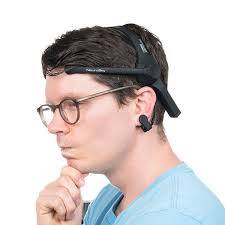
Breaking News
 Tesla Has A New, Cheaper Model Y. Will It Work?
Tesla Has A New, Cheaper Model Y. Will It Work?
 The Japanese Yen Carry Trade Is Breaking: The Trillion-Dollar Risk
The Japanese Yen Carry Trade Is Breaking: The Trillion-Dollar Risk
 Let's Do a Detailed Review of Zorin -- Is This Good for Ex-Windows Users?
Let's Do a Detailed Review of Zorin -- Is This Good for Ex-Windows Users?
 The World's First Sodium-Ion Battery EV Is A Winter Range Monster
The World's First Sodium-Ion Battery EV Is A Winter Range Monster
Top Tech News
 How underwater 3D printing could soon transform maritime construction
How underwater 3D printing could soon transform maritime construction
 Smart soldering iron packs a camera to show you what you're doing
Smart soldering iron packs a camera to show you what you're doing
 Look, no hands: Flying umbrella follows user through the rain
Look, no hands: Flying umbrella follows user through the rain
 Critical Linux Warning: 800,000 Devices Are EXPOSED
Critical Linux Warning: 800,000 Devices Are EXPOSED
 'Brave New World': IVF Company's Eugenics Tool Lets Couples Pick 'Best' Baby, Di
'Brave New World': IVF Company's Eugenics Tool Lets Couples Pick 'Best' Baby, Di
 The smartphone just fired a warning shot at the camera industry.
The smartphone just fired a warning shot at the camera industry.
 A revolutionary breakthrough in dental science is changing how we fight tooth decay
A revolutionary breakthrough in dental science is changing how we fight tooth decay
 Docan Energy "Panda": 32kWh for $2,530!
Docan Energy "Panda": 32kWh for $2,530!
 Rugged phone with multi-day battery life doubles as a 1080p projector
Rugged phone with multi-day battery life doubles as a 1080p projector
 4 Sisters Invent Electric Tractor with Mom and Dad and it's Selling in 5 Countries
4 Sisters Invent Electric Tractor with Mom and Dad and it's Selling in 5 Countries
Thought Operated Random Access Memory Prototype for Implantable Memory Devices for Less Than $200

His new research is thought operated digital random access memory
Thought-Operated Digital Random-Access Memory by Lee Ben-Amil and Ido Bachelet.
The capacity and reliability of biological memory could be exceeded by a constantly growing flux of information to remember and operate by. Yet, our memory is fragile and could be easily impaired, and the prevalence of memory disorders is increasing in correlation with the population's mean age. As expected, auxiliary memory devices (such as writing pads and computers) are abundant but are operated indirectly using significant effort compared with biological memory. We report a working prototype of a simplified, 4 KB random-access memory (RAM) that can be written to or read from using thought and could be embedded more seamlessly than other artificial memory aids. The system analyses EEG signals to extract attention levels, which trained subjects can use to write messages into an RFID sticker, or read from it on a display. We describe basic modes of using memory by a single subject, emulate common forms of social communication using this system, and highlight new forms of social usage and allocation of memories that are linked to specific persons. This preliminary prototype highlights the technical feasibility and the possibilities of implantable thought-operated memory devices and could be developed further to provide seamless aid to people suffering from memory disorders in the near future.



